Foreign visits
Prime Minister Nikol Pashinyan's working visit to the Russian Federation
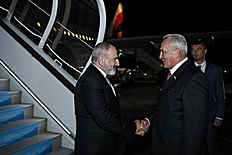 1670x1113px - 363 Kb
1670x1113px - 363 Kb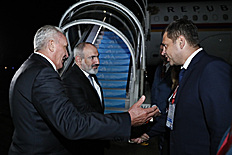 1670x1113px - 371 Kb
1670x1113px - 371 Kb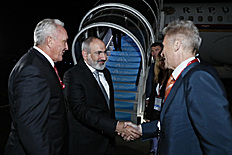 1670x1113px - 369 Kb
1670x1113px - 369 Kb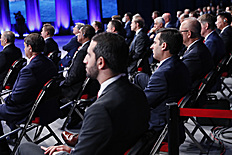 1670x1113px - 417 Kb
1670x1113px - 417 Kb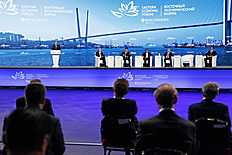 1670x1113px - 590 Kb
1670x1113px - 590 Kb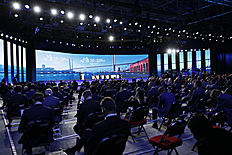 1670x1113px - 597 Kb
1670x1113px - 597 Kb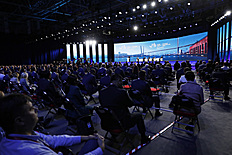 1670x1113px - 526 Kb
1670x1113px - 526 Kb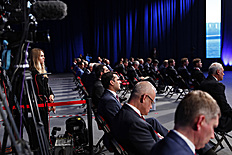 1670x1113px - 406 Kb
1670x1113px - 406 Kb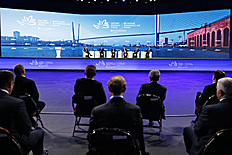 1670x1113px - 566 Kb
1670x1113px - 566 Kb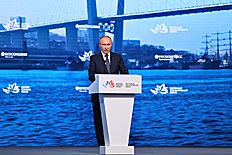 1670x1113px - 579 Kb
1670x1113px - 579 Kb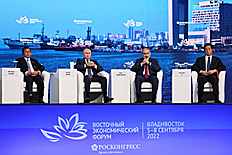 1670x1113px - 663 Kb
1670x1113px - 663 Kb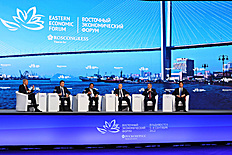 1670x1113px - 857 Kb
1670x1113px - 857 Kb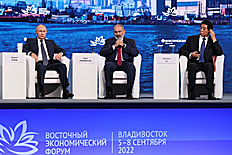 1670x1113px - 668 Kb
1670x1113px - 668 Kb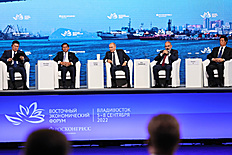 1670x1113px - 661 Kb
1670x1113px - 661 Kb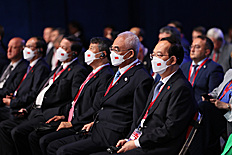 1670x1113px - 402 Kb
1670x1113px - 402 Kb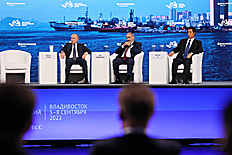 1670x1113px - 600 Kb
1670x1113px - 600 Kb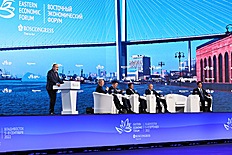 1670x1113px - 932 Kb
1670x1113px - 932 Kb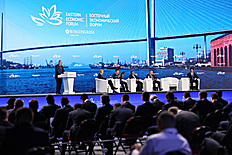 1670x1113px - 841 Kb
1670x1113px - 841 Kb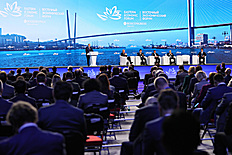 1670x1113px - 709 Kb
1670x1113px - 709 Kb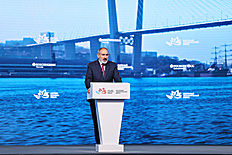 1670x1113px - 529 Kb
1670x1113px - 529 Kb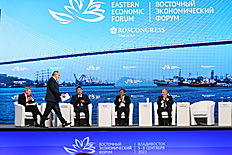 1670x1113px - 887 Kb
1670x1113px - 887 Kb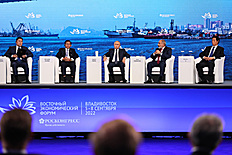 1670x1113px - 725 Kb
1670x1113px - 725 Kb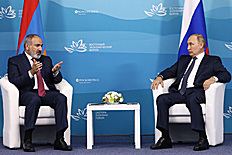 1670x1113px - 448 Kb
1670x1113px - 448 Kb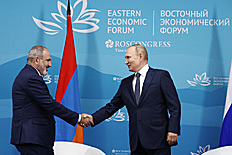 1670x1113px - 554 Kb
1670x1113px - 554 Kb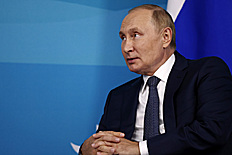 1670x1113px - 335 Kb
1670x1113px - 335 Kb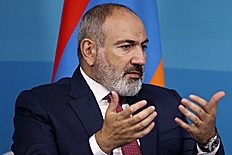 1670x1113px - 631 Kb
1670x1113px - 631 Kb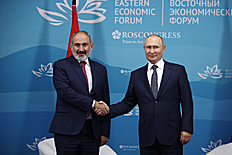 1670x1113px - 466 Kb
1670x1113px - 466 Kb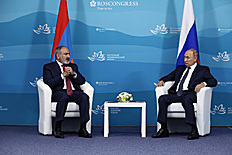 1670x1113px - 551 Kb
1670x1113px - 551 Kb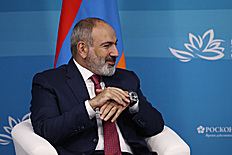 1670x1113px - 531 Kb
1670x1113px - 531 Kb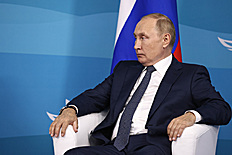 1670x1113px - 457 Kb
1670x1113px - 457 Kb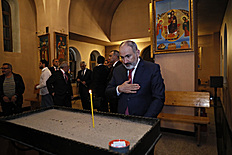 1670x1113px - 474 Kb
1670x1113px - 474 Kb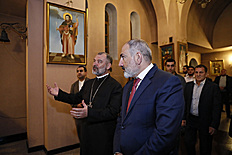 1670x1113px - 470 Kb
1670x1113px - 470 Kb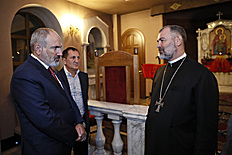 1670x1113px - 455 Kb
1670x1113px - 455 Kb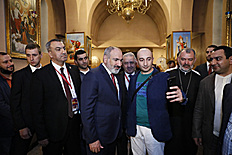 1670x1113px - 523 Kb
1670x1113px - 523 Kb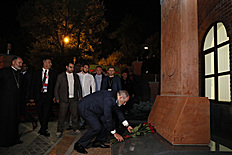 1670x1113px - 478 Kb
1670x1113px - 478 Kb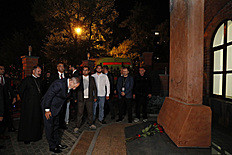 1670x1113px - 577 Kb
1670x1113px - 577 Kb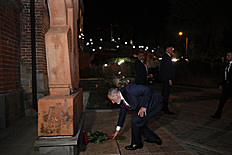 1670x1113px - 403 Kb
1670x1113px - 403 Kb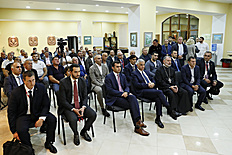 1670x1113px - 601 Kb
1670x1113px - 601 Kb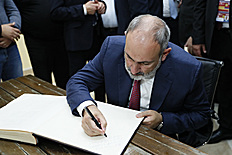 1670x1113px - 409 Kb
1670x1113px - 409 Kb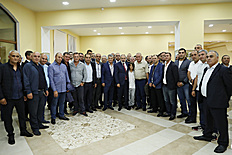 1670x1113px - 524 Kb
1670x1113px - 524 Kb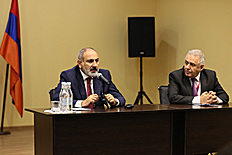 1670x1113px - 437 Kb
1670x1113px - 437 Kb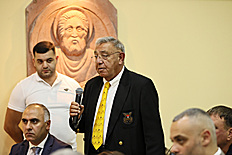 1670x1113px - 380 Kb
1670x1113px - 380 Kb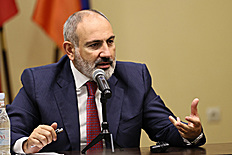 1670x1113px - 515 Kb
1670x1113px - 515 Kb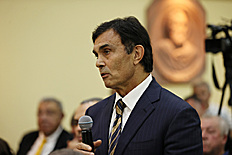 1670x1113px - 327 Kb
1670x1113px - 327 Kb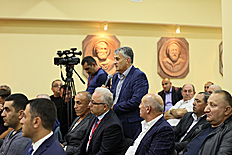 1670x1113px - 445 Kb
1670x1113px - 445 Kb
more 42 photos
Prime Minister Nikol Pashinyan arrived to the Russian Federation, Vladivostok, on a working visit. The delegation led by the Head of the Government consists of Deputy Prime Minister Mher Grigoryan, Deputy Presidents of the National Assembly Hakob Arshakyan and Ruben Rubinyan, Deputy Minister of Foreign Affairs Mnatsakan Safaryan and other officials.
The Head of the Government will take part in the plenary session of the 7th Eastern Economic Forum themed "On the road to a multipolar world" in Vladivostok, which will be held with the participation of Russian President Vladimir Putin and Heads of State of other countries.
A meeting between the Prime Minister of Armenia and the President of the Russian Federation is also scheduled.
***
Prime Minister Nikol Pashinyan participated in the plenary session of the 7th Eastern Economic Forum on the theme "On the Way to a Multipolar World" in Vladivostok.
The President of the Russian Federation Vladimir Putin, the Prime Ministers of Myanmar and Mongolia, the Chairman of the Standing Committee of the National People’s Congress of China also participated in the event. Prime Minister of India Narendra Modi, Heads of Government of Malaysia and Vietnam remotely delivered a speech at the forum.
In his speech, Nikol Pashinyan, in particular, noted,
“Dear Vladimir Vladimirovich,
Dear friends,
Let me first of all thank Vladimir Vladimirovich for inviting me to the 7th Eastern Economic Forum, a platform to exchange thoughts and ideas on a wide range of issues.
It should be noted that the most common sentence in the current year is probably that "we live in unusual times". But if we look deeper, the following question arises: When were the times usual? To be fair, human history is generally a chain and not a sequence of ordinary times. For this, humanity has created a different formula that every crisis situation brings new challenges and opens new opportunities. The main task now for governments and states is to understand how to manage the challenges and how to spot and make use of the opportunities.
In this context, of course, these are unusual times for our region as well, because there are challenges here that have existed for a long time and they are primarily related to security. How is this related to the current situation? When the attention of the entire international community, and especially the Russian Federation, Armenia's strategic ally in the field of security, is focused on the situation around Ukraine, there are concrete concerns that this may lead to destabilization of the situation in our region.
And, by the way, we have had a not so stable situation in recent years. You are aware that in 2020 we passed through a war and when Azerbaijan started that war, all the attention of the international community, including the Russian Federation, was focused on the coronavirus pandemic. We hope that in close cooperation with the Russian Federation and our partners we will be able to manage and keep our regional situation under control.
This is also very important for global security. I would like to note that we also have good news, because now there are very good dynamics in the Armenian economy. This year, we have targeted to record at least 7 percent economic growth. And in that context, I would like to emphasize that the Eurasian Economic Union has met the expectations of our country in this specific situation as well, because the economic growth that is now being observed in Armenia is related to the freedoms that the Eurasian Economic Union provides. I mean the free movement of goods, services, capital and labor, and we see this firsthand. Of course, we need to work on the next stage here in order to maintain this dynamic so that a new economic crisis does not arise following such an economic growth.
Since the issue related to the regions has already been discussed here, it is necessary to clarify what Armenia has to do with the Eastern Forum and the Far East. It is known that the logistics schemes are changing in the current situation, and if we look at the map, we can see and notice that opportunities are opening up for Armenia as well. Despite everything, the movement of goods from east to west and from west to east will not stop, and from north to south and from south to north as well. If we look at the map, it is obvious that Armenia is at the crossroads of these roads and routes. We believe that there are indeed opportunities that should be attempted to be exploited. Now we are implementing the North-South project in Armenia, it is the construction of a new highway that connects our southern border with Iran to the northern border with Georgia.
A new opportunity also emerges here. You know that on November 9, 2020, thanks to the personal efforts of Vladimir Vladimirovich Putin, a declaration was signed between Armenia, Russia and Azerbaijan on the cessation of all military operations in the Nagorno Karabakh conflict zone. And point 9 of that declaration is about unblocking all regional economic and transport infrastructures. After that, on January 11, 2021, already in Moscow, we signed a trilateral statement with the presidents of Russia and Azerbaijan about creating a working group led by the deputy prime ministers of the Russian Federation, Armenia and Azerbaijan, which deals with the opening of infrastructures in our region between Armenia and Azerbaijan. The idea of this project is that Armenia will get transport routes through the territory of Azerbaijan, Azerbaijan will get transport routes through the territory of Armenia. In a global sense, it is an opportunity to open new international trade channels.
I must say that we are interested in this and we hope to solve this issue in the near future with the support of Russia. Of course, not everything is final here. There is good progress in the work of the trilateral commission, but everything is not decided, because legal issues still need to be resolved, under which legal regulations these roads should operate. The general position is clear that the roads to be opened must operate under the full sovereignty of the countries through which they pass. And we hope that with that principle we will be able to implement the project, which we call "Armenian Crossroads". We hope that the roads connecting the south to the north and the west to the east will pass through the territory of Armenia. I think that this project is very important not only for the countries of the region - Armenia, Iran, Azerbaijan, Georgia, Turkey - but also for the Russian Federation, the far away Eastern countries, Eastern countries in general, the African region, and the Middle East as well. This is a truly global project that we hope to implement.
You know that we started a dialogue with Turkey. We hope to settle relations with Turkey with the assistance of Russia. An intensive conversation is going on with Azerbaijan in the direction of settlement of the Nagorno Karabakh problem. In this context, we also expect the support of the Russian Federation not only as a strategic ally of the Republic of Armenia. Russia is also a very close partner for Azerbaijan as well, I think it opens up an opportunity. I would also like to emphasize the role of Russia as an OSCE Minsk Group Co-chair, which deals with the settlement of the Nagorno Karabakh problem.
What are the main security concerns in our region? This is our concern. There are forces that believe that Russia, which is a key security factor in our region - at least such a perception exists in the Republic of Armenia, this is confirmed by the relations and agreements that operate between the Russian Federation and Armenia, is very is busy with the Ukrainian issue, and this can be used as an opportunity to destabilize the situation. It may seem ridiculous, but there is a situation where there are forces that spend a lot of energy to present Armenia in Moscow as a state with a pro-Western government, and to present Armenia in Europe and the West as strongly pro-Russian, using this as a factor to destabilize the situation in the region. I am very glad that we are in a close dialogue with our partners on these issues, trying to clarify our positions on all issues of the international agenda. Of course, our relations with Russia have been and remain and should remain allied and strategic. We hope that this factor will be key for stability and peace in our region.
I'd like to end my speech with a slightly unconventional thought. I can't say that I am convinced of this, but I have the impression that states, all governments of the world without exception, want peace and stability. The problem is that everyone has their own idea of peace and stability. Actually, all wars and conflicts happen for what, what is the purpose of these conflicts and wars? The ultimate goal is peace, because everyone is fighting for peace, everyone wants peace, stability, and that's the main problem. Everyone has their own idea of peace and stability, and our goal and task is, unfortunately, sometimes an intractable problem, to somehow bring our ideas closer together. It is, of course, more difficult for the key players to converge on the peace and stability formulas on which peace and stability should be based.
In recent years, this formulation - multipolarity - has been very popular. It seems that there is a very close consensus on this too, but the problem is that everyone understands multipolarity in their own way, and here, too, one should try to bring closer the positions and understandings of potential multipolarity. Thanks for attention".
Then, Prime Minister Pashinyan answered the questions of facilitator of the forum, journalist Ilya Doronov.
Question - Mr. Prime Minister, Armenia is the country that knows what energy crisis and trade crisis are. You survived all that as a country in the 1990s. But now you are living a period of intense strengthening of relations with Russia. In the last few weeks, you have communicated with Vladimir Vladimirovich Putin several times, you came to Vladivostok to participate in the forum. Aren’t you afraid that you may fall under sanctions?
Prime Minister Nikol Pashinyan - I think being afraid is not a very useful position, you have to work, as I said, to manage the challenges that arise and try not only to spot the opportunities that open up, but also to work so that new opportunities open up. Of course, we are also concerned about commercial, energy security. It must be said that we also have high inflation and it directly affects the social situation of our country, but, in general, the situation is manageable. There is a problem, but we do not have a crisis situation.
I would like to emphasize that it is also thanks to the support of the Russian Federation. Especially in the first half of the year, everyone had great concerns, and we interacted very intensively, not only within the EAEU framework, but also in a bilateral format, and raised issues. I must say that I am impressed with the promptness with which both Vladimir Vladimirovich and Mikhail Vladimirovich respond to the issues and requests raised by the Armenian side. This is a very important partnership.
I am not sure that all residents of Armenia know these nuances, despite the fact that we talk about it all the time, but it is really very important. We were just talking about transporting wheat in different directions, but I must emphasize that thanks to the decisions that were taken by the Russian President, the government, we were able to manage these challenges together. It would definitely be very difficult for us to do it alone.
Then, in response to the journalist's question, Nikol Pashinyan referred to the flow of Russian citizens to Armenia. "Many people simply came to Armenia, because people need to get salaries, because actually being in Russia, they work with the West. Due to problems with financial transfers, they have now moved to Armenia.
In my speech I tried to present our point of view. I hope that it is perceived in Russia as a movement in the EAEU, because the EAEU was created for that very reason, to allow free movement of goods, services, labor, and capital, which is what we are seeing in reality.
Vladimir Vladimirovich said that he has warned about some future problems that may arise for businessmen who work in the West, but I think that the Eurasian Economic Union has been created just for such situations, so that the economies of our countries become more flexible. To be fair, we should say that in January-February we already saw high economic growth, but already in March problems and concerns appeared.
Of course, the people who arrived in Armenia helped very well, and we are very happy. We are in constant contact with our Russian partners, because there are also areas that can be developed jointly. Now a good dynamic of Russian regions working with Armenian partners has emerged.
You asked about possible sanctions, I would like to draw your attention to the following issue. if theoretically Armenia comes under sanctions, it will not be beneficial for Russia. What do we offer? We offer to cooperate competently and use the opportunities that have now opened and also notice the challenges that are related not only to Russia, but also to the EAEU, our cooperation, in order to manage and somehow neutralize these challenges. So, we are very happy for the Russian citizens who have arrived in Armenia.
When we had discussions in the first half of this year, I drew the attention of our Russian partners to the following. If they move to Armenia, they stay in the Eurasian Economic Union and the chances that they will return to Russia from Armenia is several times higher than if they work in France or the USA. Previously, many Russian tourists came to Armenia on vacation, now they go Russia on vacation.
At presence, we have a big problem with real estate, because real estate prices are rising in Armenia, rental housing prices are also rising. It's a problem, but it creates new opportunities. If I'm not mistaken, this year we already have a 13 percent growth in the construction sector. Russian business is also interested in investing in this sector.
In the context of possible economic problems, it is very important, despite the fact that we cooperate very closely with the Russian Federation, international rating agencies reaffirm the high rating of the Republic of Armenia. I would like to draw the attention of Russian businessmen that Armenia is making great progress in the ranking of states with a free economy, and in this context, we have new ambitions and hope to be among the top ten in the global ranking.
We have very good opportunities for the economic cooperation between Armenia and Russia to be at an even higher level, despite the fact that Russia has always been Armenia's number one trade and economic partner for the past 30 years. It is very important that now there is an opportunity to change the quality of economic cooperation as well."
***
The meeting between the Prime Minister of the Republic of Armenia Nikol Pashinyan and the President of the Russian Federation Vladimir Putin took place within the framework of the 7th Eastern Economic Forum on "On the Way to a Multipolar World" held in Vladivostok.
In his speech, the Russian President particularly said, “Dear Nikol Vovayevich, we are in constant contact with you: regular meetings, telephone conversations on current topical issues, but nevertheless, meeting you personally today, I consider it important to mention that this year we mark the 30th anniversary of diplomatic relations, the 25th anniversary of the signing of the fundamental agreement.
Our relations are developing in all directions. We work in our organizations, both in the economic organization and in the CSTO, I mean, ensuring security and stability. In the near future, you are also planning to attend the events planned within the framework of the Shanghai Cooperation Organization in Uzbekistan, where there will be opportunities to meet and negotiate with your partners once again.
Russia confidently maintains the first place among Armenia's trade and economic partners. Trade turnover has recently increased by approximately 25-30 percent. We really notice economic stabilization in Armenia. Your government has done a lot in that direction.
Of course, one of the most sensitive issues is about ensuring security around Nagorno Karabakh. We always talk about it, we are always in touch. And I am happy to talk about all these issues during your visit to Russia, within the framework of the economic forum in Vladivostok.
We are expanding the range of companies and people who cooperate with each other. In the near future, business operators are also going to meet, and they will also hold a regional forum. Other events are also planned, including in humanitarian, cultural and educational fields.
Thank you very much for accepting the invitation and visiting the economic forum in Vladivostok."
In turn, Prime Minister Nikol Pashinyan said. "Thank you very much, Vladimir Vladimirovich. Let me once again thank you for the invitation to participate in the Eastern Economic Forum. To be honest, I enjoyed the forum (it's still going on, of course), I'm impressed with Vladivostok, it's a great place. I hope there will be opportunities to visit also in the future and not only for work purposes, but also for other occasions.
Of course, as you already mentioned, this year was a very important year for our relations, I mean the anniversaries related to both the CSTO and our bilateral relations.
Russia is the closest partner and strategic ally of the Republic of Armenia. And particularly in these difficult times, constant communication and clarification of positions are very important.
You mentioned, I also want to mention the mission of Russian peacekeepers in Nagorno Karabakh. I have to admit, this is not an easy mission. We have talked about it many times. We highly appreciate the activities of Russian peacekeepers in Nagorno-Karabakh, in the Lachin Corridor, and I think it is very important to highlight that. In general, in the sense of ensuring security in Nagorno-Karabakh, there are nuances that we constantly discuss, and I think that it will be very appropriate to discuss these issues also today.
The issues related to trade and economic relations between our countries are also of a traditional nature. It is very gratifying that in the post-pandemic period, our trade and economic relations have not only been restored, but there are also some new positive developments, which we talked about during the forum.
Of course, the agenda of our relations is very rich, and I am sure that we will have a meaningful and intense conversation today as well. Thanks again for the warm reception."
***
Prime Minister Nikol Pashinyan visited St. George Armenian Apostolic Church in Vladivostok, where he met with the representatives of the local Armenian community.
Father Sargis Parakhchyan and head of the Armenian community of Vladivostok Harutyun Avedyan welcomed the Head of the Government. First, the Prime Minister lit a candle, then laid flowers at the cross-stone placed in the churchyard dedicated to the memory of the victims of the Armenian Genocide and the Armenians who died in the Great Patriotic War.
Then the Prime Minister answered a number of questions of the representatives of the Armenian community. Nikol Pashinyan referred to the working visit to Vladivostok, the meeting with the President of the Russian Federation, as well as the opportunities for settlement of the Nagorno Karabakh issue, unblocking of regional infrastructures, border demarcation with Azerbaijan.
In response to the questions of the attendees, the Prime Minister also spoke about Armenia's foreign policy, the conditions created for business in our country, the government's priorities, the army and other topics.